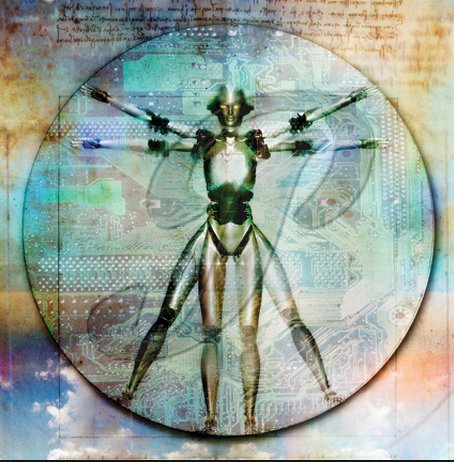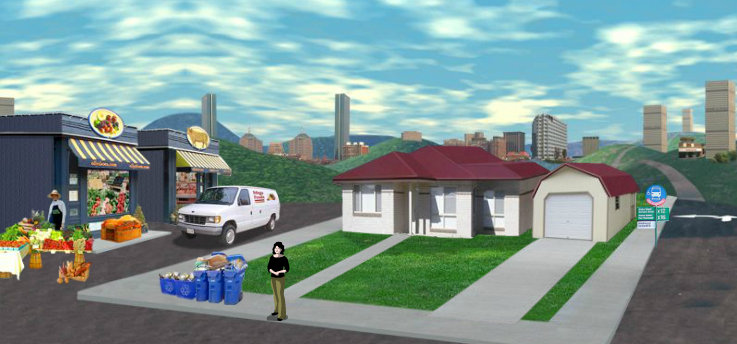Access to the Learning Event: Is My Lifestyle Sustainable?
Is My Lifestyle Sustainable?
Learning Event Resources and Activities
This learning event entails:
- Viewing 2 short videos (8 min)
- Reading a paper (15-20 min)
- Completing an interactive footprint calculator quiz (15 min)
- Discussing your results and those of others in a forum (20 min)
- Finding and posting a resource of your own on social media (10 min)
- Writing a reflective blog post (300-500 words, informal) on the experience and commenting on the blog of other(s) (1/2 hour)
- The following week, via a brief questionnaire, reflecting on the impact of this LE (10 min)
The Resources and activities for this event are presented sequentially, in the order you might best watch, read and then complete the activities. Please try to participate in the forum activity within the first few days of the LE.
The LE discussion forum can be accessed from the main page of the unit. There is an additional forum for general discussion, Q & A, and tech help.
You can use any blog site you wish for this task, including Tumblr, google +, or your Edinburgh ELGG or WP. Please add the URL for your blog/post to the wiki list on the main page. Click on the link, then edit, then add your name and URL, hyperlinking if you can.
The final questionnaire will be posted on the main page for the unit on Sunday 16th November. A notification will be sent when this is open.
For this event, we will be using the hashtag #H21AT. You can access the twitter feed from the block on the left of the main page of the unit. Full functionality of this widget may depend on your browser.
Resource 1: Welcome to the Anthropocene
'Anthropocene is a neologism created in the year 2000 by Paul Crutzen, the Dutch Nobel Prize-winning chemist. This word designates a phenomenon that has yet to be clearly defined: the birth of a new geological era marked by the predominant influence of humans on the processes and relationships that make up Earth systems.' (http://globaia.org/themes/anthropocene-3/)
If this video was of particular interest, for more on the Anthropocene, visit Globia: http://globaia.org/. A beautiful website.
Resource 2: Plastic Oceans
This short promotional film demonstrates one of the many unintended consequences of our remarkable scientific progress of the past two centuries.
Plastic Oceans: http://www.plasticoceans.net/
Resource 3: Our Place in Nature: Past, Present and Future
Stephen Boyden argues that 'if present trends in human activity continue unabated, the ecological collapse of society is inevitable'. In making a case for the development of a "biosensitive society", this paper presents the biohistorical background to the present human situation on planet Earth, the major ecological causes for concern today and the essential characteristics of a biosensitive society, one way forward as the "best hope for the future".
Click the image to access the PDF.
Boyden, S. (2011). Our Place in Nature: Past, Present and Future. Nature and Society Forum.
For more on Biosensitive Futures visit http://biosensitivefutures.org/
Activity 1: Ecological Footprint Calculator Quiz
The Global Footprint Network is one of many groups to have developed graphic ways to show just how much of our global resources are being used or overused right now by individuals, groups and the entire human population.
To calculate your personal ecological footprint: click on the image below
Activity 2: Forum Discussion: My Ecological Footprint
After completing the Ecological Footprint Quiz, post a 300 (ish) word initial post to the discussion forum. Were you surprised by the quiz result, or did you anticipate it correctly? How you could realistically reduce your own personal footprint to match that required for global sustainability? Explain why this may or may not be feasible. Contribute to the discussions of your fellow students.
Activity 3: Taking Action
Think of how you might communicate ways to reduce our impact on Earth's ecosystems. For this task, find a resource of your own and post on social media, an online news site or other public space. If you wish, you can also share your resource on the discussion forum and/or on twitter (using #H21AT).
Here are a couple of examples: How to make a solar heater out of beer cans, a month without plastic, carbon neutral vacations or waste not (requires flash)
Activity 4: Blog Post
Write a brief 400-500 word blog post reflecting on what you have learned about our impact on the planet, your personal ecological footprint and engaging others with this issue. You can take as informal an approach to this writing task as you wish.
Activity 5: Reflective Questionnaire
After participating in this LE, we'd like you to complete a brief questionnaire reflecting on this experience. This has a dual purpose in providing a further opportunity for reflection and in assisting us in evaluating the event. A notification will be sent when this activity is available on Sunday 16th November.


